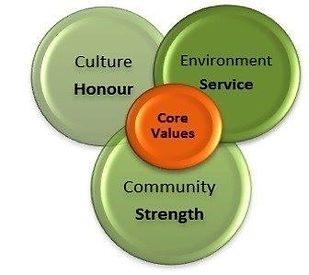

CrossTrek
CrossTrek
Valuing Communities & the Environment





YouthTrek Adventure Based Programs & Philosophy
Strength - Honour - Service


1) Impart into the participants a sense of Social/Cultural Responsibility.
2) Develop knowledge of and responsibility for their local Environment.
3) Create opportunities for Personal Development.
4) Create pathways for employment or active engagement within the local community.
5) Value adding and creating sustainability within the individual, Community and Environment.
- Out of school Disengaged Youth
- In School At Risk Youth Intervention
- In School Leadership Development
As a framework for Personal Development YouthTrek Programs utilise the three areas of life influence that affect the Core Values of an individual participant. Each individual is in part shaped and changed by these three areas as well as being able to influence and make change to these areas of life.

1. Culture: By understanding our Culture and what our Culture values we can bring Honour to our Culture through our lives and we can also have a part to play in shaping and influencing our Culture.
2. Environment: Service within the environment we live in is the pathway to gaining knowledge, understanding and respect for our environment (natural places as well as built places).
3. Community: Our communities are made up of individuals who have relationships and impacts on each other. In order to Strengthen our community we act in ways that add value to the lives of individuals within our lifes influence.
Program Philosophy
The Program’s design and delivery style is based on the foundations of Adventure Programming and Experiential Philosophy. This style of programming includes the following contexts for application: Experiential Education, Outdoor Education, Adventure Education, Environmental Education, Outdoor Recreation and Outdoor Pursuits. The product of adventure programs can be cognitive (fact acquisition), physical (technical skill development), or affective (emotional or social development). Affective learning can be classified as two interactive products; development of individuals through improved intrapersonal relationships (emotional development), and development of groups through enhanced interpersonal relationships (social development). Secondary aims may relate to the environmental relationships, but the product of most adventure programs is people who understand themselves more fully and relate to others more effectively. The following are some of the many affective outcomes expected from adventure programming.
- New confidence in oneself
- Increased willingness to take risks
- Improved self-concept
- Enhanced leadership
- Increased logical reasoning
- Greater reflective thinking
- Enhanced co operation
- More effective communication skills
- Greater trust in others
- Increased sharing of decision making
- New ways to resolve conflict
- Improved problem solving
- Enhanced leadership